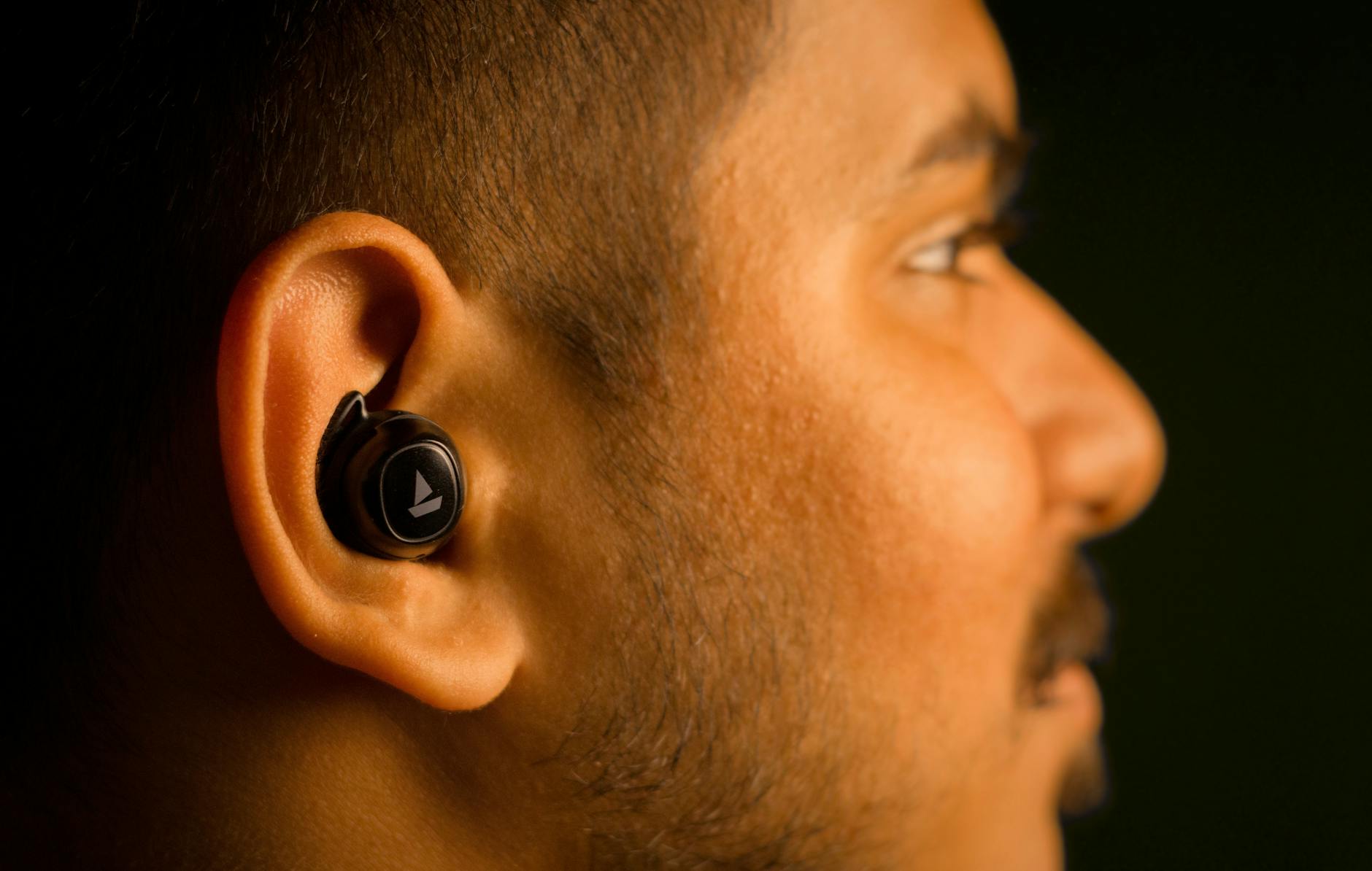You’re not imagining it: when hearing gets harder, thinking can feel harder too. Conversations take more effort. Names slip away. Social plans feel draining. The good news? Addressing hearing loss doesn’t just make speech clearer—it can also support your brain’s long-term health.
Here’s what the science actually says about hearing, cognition, and why taking action now can pay dividends later—plus a realistic plan to get started even if you’re unsure where to begin.
Why Hearing Loss Strains Your Brain
Hearing is a team sport between your ears and your brain. Your ears collect sound, but your brain does the heavy lifting—separating speech from noise, filling in missing words, and making sense of meaning and emotion.
When hearing declines, your brain works overtime to keep up. That chronic extra load can trickle into memory, attention, and mental energy.
The everyday chain reaction
- More listening effort: You spend mental resources “decoding” words instead of remembering details or thinking ahead.
- Memory trade-offs: If your brain is busy hearing, it has less bandwidth to store what you heard.
- Social fatigue: Conversations become tiring, so you may naturally withdraw, reducing cognitive stimulation.
- Mood and motivation: Frustration or low mood can follow, which also nudges cognition in the wrong direction.
Over time, this mix of extra effort, fewer social interactions, and reduced enrichment may contribute to cognitive decline for some people. Importantly, that means it’s a modifiable target—something we can do something about.
The Evidence: What Research Says About Hearing and Cognition
No single study has all the answers, but several large, well-designed projects point in the same direction: treat hearing loss, and you may support better brain outcomes.
Key findings at a glance
- Hearing loss is one of the top potentially modifiable risk factors for dementia across the lifespan, according to global experts. That means addressing it is a meaningful lever for brain health.
- In a major randomized study of older adults at higher risk for cognitive decline, those who used hearing aids and received hearing support had slower cognitive decline over three years compared with a control group. The benefit was most pronounced in participants with elevated risk factors.
- Observational studies over many years consistently link untreated hearing loss with faster cognitive decline and greater dementia risk. While associations aren’t proof of cause, the pattern is robust.
- Brain imaging research suggests untreated hearing loss can be associated with changes in brain structure over time. Early, consistent hearing support may help maintain healthier patterns of brain activity.
Bottom line: We can’t claim hearing aids “prevent” dementia. But for many adults—especially those at higher risk—treating hearing loss can reduce listening strain, preserve social connection, and may slow cognitive decline.
Who Stands to Benefit Most?
Anyone who is struggling to follow conversations can benefit from a hearing evaluation and a plan. That said, certain groups may see outsized gains from early action:
- Adults 60+ with untreated hearing loss, particularly if conversations are exhausting or you avoid noisy places.
- People with cardiovascular risk factors (like high blood pressure, diabetes, or a history of stroke) that raise overall cognitive risk.
- Those who notice difficulty in group settings, meetings, or restaurants—classic signs that the brain is working extra hard to hear.
- Caregivers and partners: supporting a loved one’s hearing can improve communication, reduce stress, and boost quality of life for everyone.
If that sounds like you, an audiologist can tailor solutions to your hearing and your lifestyle. No pressure, just options.
What Treating Hearing Loss Actually Looks Like
You don’t need to overhaul your life overnight. Think small steps and steady gains. A typical hearing-care journey:
1) Start with a comprehensive hearing evaluation
- Includes an ear health check, case history, and hearing tests (tones, speech, sometimes speech-in-noise).
- Expect a conversation about your daily listening challenges and goals.
- If earwax, infection, or other medical issues are suspected, you’ll be referred to a physician or ENT. Sudden changes in hearing require urgent medical attention.
2) Discuss your options
- Prescription hearing aids: Custom-programmed devices from an audiologist. Best for most moderate-to-severe losses and complex listening needs.
- Over-the-counter (OTC) hearing aids: For adults with perceived mild-to-moderate loss who want an accessible starting point. Good for simpler needs and budgets.
- Assistive listening devices (ALDs): TV streamers, remote microphones, captioning apps, and more to boost hearing in specific situations.
3) Fit, fine-tune, and follow up
- Expect 1–3 follow-up visits in the first few months to adjust sound, comfort, and features.
- Real-ear measurements (when available) help ensure your devices deliver the right amplification for your ear canal and prescription.
- Plan for acclimatization: your brain adapts to clearer sound over weeks, not hours. Steady daily wear is key.
4) Build communication habits that protect brain energy
- Position yourself to see faces and reduce background noise when possible.
- Ask conversation partners to get your attention first and speak at a natural pace (loud isn’t the same as clear).
- Use captions unapologetically—for TV, video calls, and live presentations when available.
Small improvements add up. Clearer hearing reduces effort, which can free up cognitive bandwidth for memory, problem-solving, and simply enjoying the moment.
Hearing Aids—and Beyond: Daily Habits That Help Your Brain Hear
Hearing technology is powerful, but your environment and routines matter too. These strategies complement devices and support brain health:
Optimize your soundscape
- Choose quieter tables in restaurants (corners, soft furnishings, away from speakers).
- Use directional microphones or a remote mic in group meetings.
- At home, turn off competing noise (ex: dishwasher) during conversations.
Train your brain
- Short, regular listening practice: podcasts or audiobooks with captions, gradually increasing complexity.
- Auditory training apps or clinician-led programs can improve speech-in-noise skills for some people.
- Combine audio with visual cues (captions, face-to-face) to strengthen comprehension.
Protect the hearing you have
- Wear hearing protection in loud environments (concerts, power tools, stadiums).
- Mind volume and duration for headphones; follow the 60/60 rule (no more than 60% volume for 60 minutes at a time, then take a break).
Support whole-body brain health
- Move daily: aerobic activity supports blood flow to both ears and brain.
- Sleep well: adequate sleep boosts memory and processing.
- Manage blood pressure, blood sugar, and cholesterol with your healthcare team.
- Stay social: plan regular, meaningful connection—clubs, volunteering, calls with friends.
Cost, Coverage, and Practical Steps
Worried about price? You have options, and a thoughtful plan can keep costs manageable.
- Try-before-you-buy: Most prescription hearing aids come with a trial period. Use it well—test in restaurants, meetings, phone calls, and follow up for adjustments.
- OTC as a starter: If you suspect mild-to-moderate loss, OTC devices can be an affordable way to gauge benefit before pursuing prescription care.
- Insurance and benefits: Some private plans cover hearing aids or hearing tests. Medicare generally covers diagnostic testing but not hearing aids; Medicare Advantage may offer some benefits. FSA/HSA funds often apply.
- Ask about service plans: Bundled vs. unbundled options can affect total cost. Clarify follow-up care, supplies, and warranties up front.
- Community resources: Veterans, union members, and some state programs offer support. Hearing clinics may have demo or refurbished options.
Not sure where to start? A consultation with a licensed audiologist is a low-pressure way to map your options. Bring a list of listening situations that matter most to you.
Red Flags That Warrant a Conversation
Consider booking a hearing evaluation if you notice:
- Frequent “What?” or asking people to repeat.
- Difficulty following group conversations or meetings.
- TV volume creeping up while others complain it’s loud.
- A sense of mental fatigue after social events.
Seek urgent medical care for sudden hearing changes, hearing loss in one ear only, or hearing changes accompanied by severe vertigo, facial weakness, or ear pain.
Your 30-Day Starter Plan
Week 1: Awareness and assessment
- Note the top three situations where hearing is hardest.
- Reduce background noise in those settings and try captions on TV or calls.
- Schedule a comprehensive hearing test with an audiologist.
Week 2: Try solutions
- If recommended, trial hearing aids (prescription or OTC depending on your evaluation and goals).
- Set up your phone/TV to stream audio if available. Practice 15 minutes of listening with captions daily.
- Share simple communication tips with family: face you, say your name first, one speaker at a time.
Week 3: Fine-tune and expand
- Follow up for adjustments based on real-world notes.
- Add a remote mic or captions for meetings and group events.
- Plan two social activities in quieter settings to rebuild confidence.
Week 4: Build habits that stick
- Wear devices at least 8 hours/day to cement brain adaptation.
- Keep a short list of wins: less effort, clearer meetings, better calls.
- Book your next follow-up. Consistency is where the long-term brain benefits accumulate.
Encouragement for the Road
If you’ve been on the fence, you’re not alone. Many people wait years before addressing hearing changes. But the earlier you act, the more brain-friendly your listening life can become. Clearer hearing supports connection, confidence, and cognitive resilience—today and for years to come.
Ready to explore your options? A licensed audiologist can tailor technology and strategies to your goals. Consider this your nudge to make that first appointment.
Frequently Asked Questions
Do hearing aids prevent dementia?
No single tool can promise prevention. However, high-quality studies show that treating hearing loss—especially in older adults at higher risk—can reduce listening effort, maintain social engagement, and may slow cognitive decline. Think of hearing care as one important part of a broader brain-health plan.
I’m only in my 50s with mild hearing changes. Is it too early to act?
Not at all. Early support can make daily listening easier and may help your brain maintain efficient processing patterns. A hearing evaluation will clarify your baseline and options, including over-the-counter devices if appropriate.
What if background noise is my main problem?
That’s common. Ask your audiologist about devices with strong speech-in-noise features and real-ear verification. Add practical strategies—better seating, remote microphones, and captions during calls or meetings. Auditory training can also help some people improve in noisy environments.
Can over-the-counter (OTC) hearing aids help my cognitive health?
OTC devices can reduce effort and improve access to communication for adults with perceived mild-to-moderate hearing loss. For more complex hearing needs, a prescription fitting with an audiologist usually provides better speech-in-noise performance and follow-up care. The most important step is getting started with the right solution for your needs.



